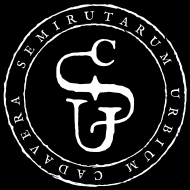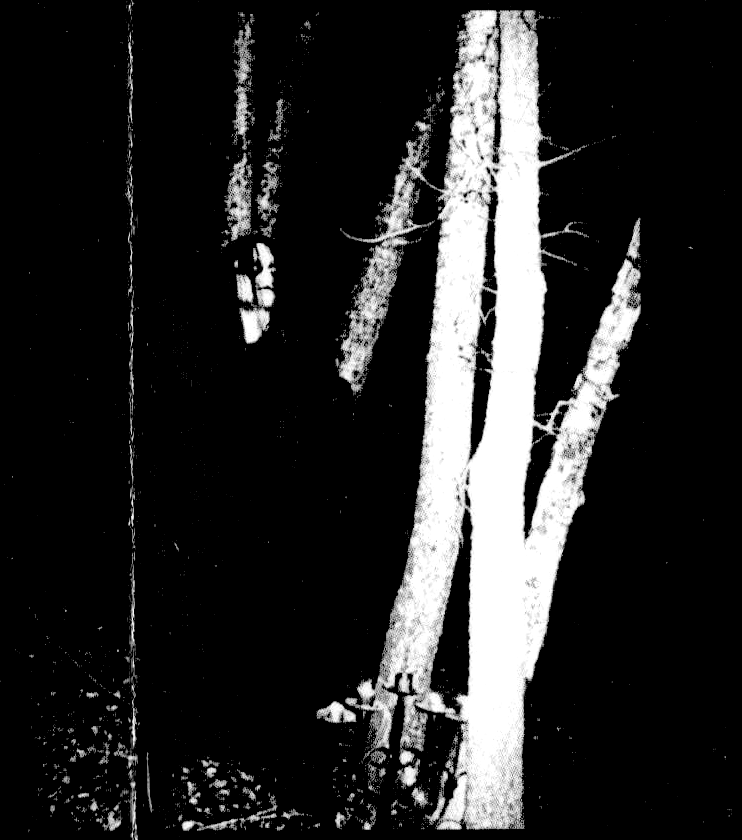After reading the astonishing piece written by Draugr for Decibel Mag, we instantly decided that we needed more from him. Thus we reached him for an interview. Here are his words.
Dopo aver letto lo strabiliante pezzo di Draugr per Decibel Mag, abbiamo deciso immediatamente che volevamo maggiori notizie da lui. Di conseguenza lo abbiamo contattato per un’intervista. Queste sono le sue parole.
Hello Draugr and thanks for your time and patience.
In your interview for Decibel Magazine you talked about your loss of interest in your project Galdr because of the environment that surrounded you: people that promoted and normalized national-socialism. We read about that incident that involved your former label “Darker Than Black” and the broken cd cases they sent you, but was there a particular event that made you realise that you were actually going against your “beliefs”, that you didn’t have any inspiration for your project Galdr and that you needed to change what and who surrounded you? For example, have you had any experiences of discrimination towards someone you know, that ended your “honey moon” with far right ideas?
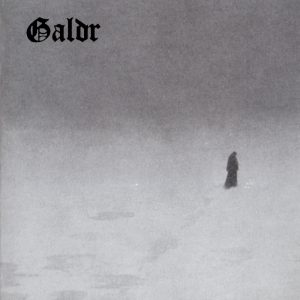
D: I would like to say that suddenly, one day, I had an epiphany and completely changed my point of view. But in reality, mine was a gradual shift away from a reactionary point of view to a revolutionary one. This change arose from an ongoing analysis of my experience and identity as a working class, queer person. The realities I experienced as I grew and spent time working low-wage jobs, listening to the experiences of other working and vulnerable people and observing the dynamics at play in western capitalist society for myself didn’t align with the realities presented in the right-wing realm of thought. I uncovered this truth over the course of years, falling into different tendencies of leftist along the way. My perspective is always open to new understandings, and I am always seeking to develop my own personal theory further, however, I can say that today I have come to a place politically where I feel and have felt confident in my stance enough to engage in real-world organizing for a few years now.
At the time I received the CDs for the third album, I would describe my perspective as typically liberal. I felt uneasy about my dealing with DTB, but not enough to take action. Instead, apathy overcame me, and, exacerbated by the box of smashed cases, I resolved to just shove them on a shelf and essentially neglect Galdr from then on. Later, after rethinking the situation from a political standpoint as well as being motivated by a feeling of loss for those albums that were very dear to me, I realized the best action would to use Galdr to rebuke DTB and right-wing thought at large. Thereby reviving a sense of enthusiasm for the project as well as turning it into a weapon against those reactionary forces.
Looking back, I think the various botched transactions between DTB and I were likely just a sign that his priority was pushing his ideology and influence, rather than producing quality art.
Let’s talk about your current situation. Did something in your political activity change after we last heared from you? How is stuff going on in Atlanta? Are you still organizing at your workplace?
D: Thank you for asking. Yes, unfortunately I was laid-off from the workplace I was organizing during the first COVID-19 peak. I’m now out of Atlanta and operating from a new city with another member of my collective. I’ll be working with my union to find a new job soon and begin agitating there right away.
Back to metal: listening to this music and especially to black metal, the lyrics are hard to understand clearly, therefore you need to check them autonomously. Do you think that this “peculiarity” could ease far-right movements to spread their word without being “overt”?
D: I think that’s one of many ways the far-right tries to gain influence in the scene. Whether they themselves have projects with ambiguous or coded messages, or whether they as artists or labels surround themselves with politically ambiguous artists to keep a low profile, it’s clear that the nature of these ideologies are often highly insidious in these kinds of subcultures. I think it’s necessary to discuss and analyze its entry points, and the places in culture that are vulnerable to influence from far-right ideologies, in order to best combat it.
What value do you give to lyrics in your projects? How much do you see music as a way to convey antifascist messages?
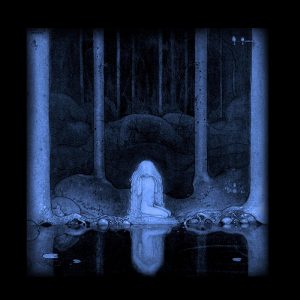
D: As far as the first three Galdr albums are concerned; there wasn’t any sort of political narrative behind them. I created them before I had any solid political tendency, of course. The subject matter of those albums focused more on an esoteric reverence to wild nature, as well as just directly referencing mythology. I felt that I wanted the themes in those albums to be timeless, or maybe a narrative that existed in some older eon.
Since then, my spiritual and political perspectives have developed a great deal, and I find that those two realms naturally intersect. The effect it has on my lyrical output for Galdr is yet to be seen, but I can’t see how such a development wouldn’t appear in the continued narrative of the project. In other projects, I make no attempt to hide my leftist convictions in lyrics. I consider my political activity an extension of my artistic output and vice versa. To me, these intersections build up the foundation of my artistic experience and understanding going forward.
As you previously wrote, your religious beliefs changed a lot during your life, did they evolve in parallel with your political ideology? Do you think that they are linked? As many of us in the revolutionary milieu are atheists, how do you connect spirituality to your political beliefs?
D: Yes, in fact, it’s an unfortunate truth that a lot of contacts I made through those developments in my religious practice had reactionary outlooks that would rub onto me over time. I began life as a Buddhist in a progressive household. At some time in life, likely spurred on by metal, I became interested in nordic-paganism and its spiritual practices. I am still a huge fan of Norse mythology, however, the context for those practices seemed dated to me over time. Parallel to my political education, I became reacquainted with Buddhist and Daoist philosophy and it became a point of study again alongside leftist authors. I would describe my religious tendency today as an intersection between a Daoist, geometric view of the character of the universe and reverence for/participation in structures of collective, horizontal power, naturally occurring and consciously established by people in society.
Could we say that you experienced a sort of “awakening” – both political and personal that converged together? Apart from your music personal relationships (with labels, fans and other musicians), how did this affect the way you approach black metal?
D: Musically nothing has changed, but it fundamentally changed the way I view how artistic work is done and how it can and should be organized. We do have one advantage in black metal in that many artists already adopt a collective module for their creative outputs. I think this is an important thing to acknowledge as well as a great opportunity for leftists to lead the way in shaping the future of this genre. Collective work, collective power is what will win.
Why do you think that it is important for us to tackle neonazis ideas and events in black metal? How should we do it to be the most effective?
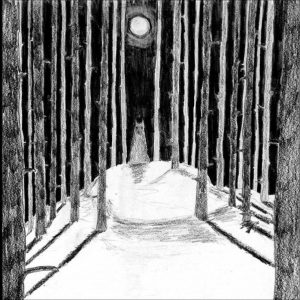
D: It’s a big question. My first thought is of course “Because they’re Nazis!” But really, the motivation to fight that influence in this scene comes from many places. To maintain an inclusive space for artists and listeners of any background to participate. To contribute to the fight against fascist influence in every crevice of every inch of popular and unpopular culture. For the love of our art, for the health of our scene at large.
If you want my opinion on how we do this, we organize!
We build networks of antifascist influence and power within the scene. We unveil NSBM for the joke it is.
What is the future for your projects? In which way would you want to maintain a connection between your projects and your political militancy?
D: They continue as planned, as active as ever and expecting new works completed soon. The work of our collective (One Void Collective) in spreading the influence of our revolutionary perspective through art/action is our focus.
Many thanks to you and your collective for these questions.
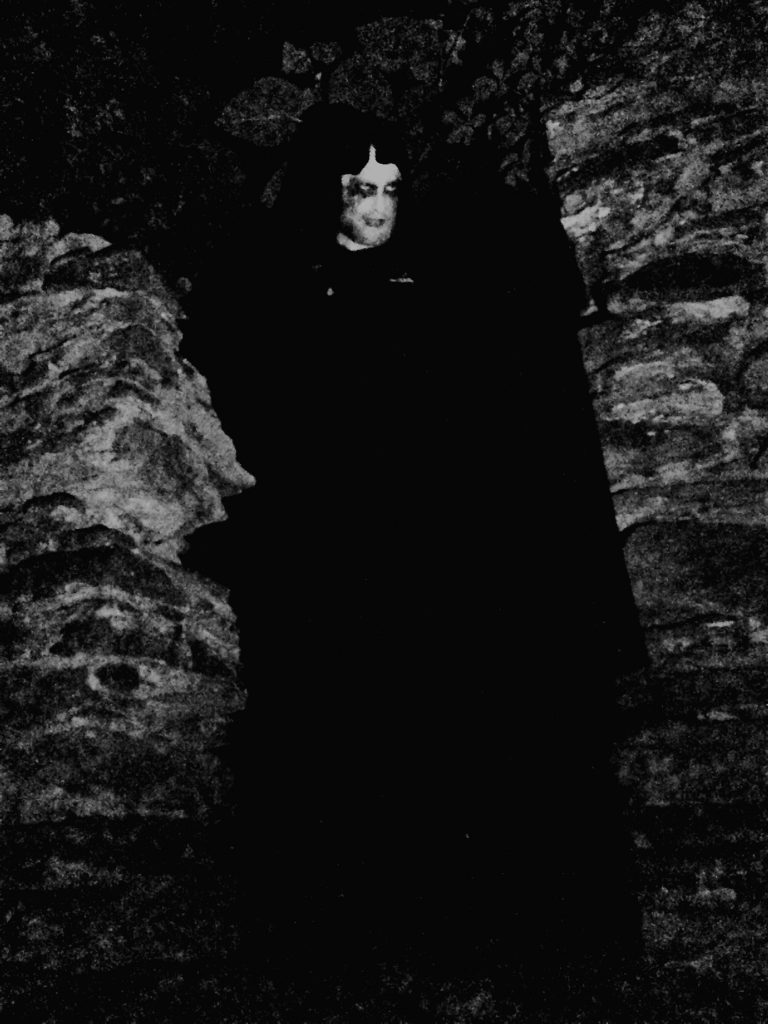
Ciao Draugr e grazie per il tuo tempo e la tua pazienza.
Nella tua intervista su Decibel Magazine hai parlato di aver perso l’interesse per il tuo progetto Galdr a causa dell’ambiente che ti circondava: persone che promuovevano e normalizzavano il nazional-socialismo. Abbiamo letto di quando la tua label di allora, la Darker Than Black, ti abbia mandato le custodie dei CD rotte, ma c’è stato un evento in particolare che ti ha fatto comprendere che in realtà stavi andando contro ciò in cui credevi, che non ti sentivi più ispirato per il tuo progetto Galdr e che avevi bisogno di cambiare ambiente e persone che ti circondavano? Per esempio, hai avuto delle esperienze di discriminazione nei confronti di qualcun che conosci che ha portato alla fine della “luna di miele” con le idee di estrema destra?

D: Vorrei poter dire di aver avuto un giorno, improvvisamente, un’epifania e aver completamente cambiato il mio punto di vista. Ma in realtà il mio è stato un cambiamento graduale: da un punto di vista reazionario a uno rivoluzionario. Questo cambiamento è iniziato da un’analisi della mia esperienza e identità come persona queer e appartenente alla classe lavoratrice. Con le realtà esperite crescendo e lavorando per pochi soldi, ascoltando le esperienze di altre persone lavoratrici e vulnerabili, e osservando le dinamiche che si dispiegano all’interno della società capitalista occidentale. Tutto ciò non quadrava con le realtà presentate dalla mentalità di estrema destra. Ho compreso questa realtà nell’arco di qualche anno, mentre mi scoprivo vicino a varie correnti della sinistra. La mia prospettiva è sempre aperta a nuove idee, e cerco constantenemtente di sviluppare ulteriormente la mia posizione teorica; cionostante, posso dire di essere giunto a una posizione politica che mi permette di sentirmi sicuro nelle mie idee, abbastanza da permettermi di organizzarmi nel mondo reale.
Quando ho ricevuto i CD per il terzo album avrei descritto la mia prospettiva come tipicamente liberale. Mi sentivo a disagio nel collaborare con DTB, ma non abbastanza da fare qualcosa in merito. Invece l’apatia mi ha sopraffatto e, esarcebato dalle custodie per i CD rotte, ho risolto mettendole su uno scaffale ed essenzialmente trascurando Galdr da quel momento in poi. Dopo aver riflettuto sulla situazione da un punto di vista politico ed essendo motivato da un sentimento di perdita per quegli album che mi erano cari, ho capito che l’azione migliore da fare sarebbe stato usare Galdr per aggredire DTB e l’estrema destra in generale. Quindi ravvivando un senso di entusiasmo per il progetto e usandolo come un’arma contro quelle forze reazionarie.
Guardandomi indietro, penso che i tentativi falliti tra me e DTB erano probabilmente un segno che la priorità della label era spingere la sua ideologia e le sue influenze, piuttosto che produrre arte di qualità.
Parlando della tua situazione attuale: è cambiato qualcosa per quanto concerne la tua attività politica da quando ti abbiamo sentito l’ultima volta? Come vanno le cose ad Atlanta? Ti stai ancora organizzando sindacalmente sul tuo posto di lavoro?
D: Grazie per averlo chiesto. Sfortunatamente sono stato licenziato durante il primo picco Covid-19 dal posto di lavoro dove mi organizzavo sindacalmente. Ora mi trovo fuori da Atlanta e mi muovo in una nuova città con un altro membro del mio collettivo. Lavorerò con il mio sindacato per trovare un nuovo lavoro e ricominciare a mobilitarmi lì fin da subito.
Tornando al metal: spesso durante l’ascolto di questa musica e in particolar modo del black metal, i testi sono difficili da identificare, quindi spesso c’è bisogno di andare a controllarli autonomamente. Pensi che questa “peculiarità” possa aiutare i movimenti di estrema destra a diffondere le loro idee senza essere palesi?
D: Io penso che sia uno dei tanti modi con cui l’estrema destra prova a ottenere influenza nella scena. Che abbiano loro stessi dei progetti con messaggi ambigui o in codice, o che in quanto artisti o etichette si circondino di personaggi politicamente ambigui, è chiaro che la natura di queste ideologie sia spesso insidiosa in questo tipo di sottoculture. Penso sia necessario discutere e analizzare quali siano le vie di ingresso e i punti vulnerabili da parte dell’influenza delle ideologie di estrema destra nelle culture, in modo da combatterle al meglio.
Che valore dai ai testi nei tuoi progetti? Quanto vedi la musica come uno strumento per esprimere messaggi antifascisti?

D: Per quanto riguarda i primi tre album di Galdr non vi era alcun tipo di narrazione politica dietro. Li ho creati prima che sviluppassi una tendenza politica solida, ovviamente. Il tema di quegli album era più incentrato su una riverenza esoterica nei confronti della natura incontaminata, così come riferimenti diretti alla mitologia. Sentivo che volevo che i temi di quegli album fossero senza tempo, o magari delle narrazioni che esistevano già da tempo immemore.
Da quel momento le mie prospettive spirituali e politiche si sono evolute molto e penso che questi due ambiti si intersechino naturalmente. L’effetto che ha sulla “produzione” lirica di Galdr è ancora da vedere, ma non posso capire come uno sviluppo del genere possa non apparire nella continuità narrativa del progetto. Negli altri progetti non tento di nascondere nei testi le mie convinzioni di sinistra. Considero la mia attività politica come un’estensione della mia produzione artistica e viceversa. Per me queste intersezioni sono alla base dell’evoluzione della mia esperienza e comprensione artistica.
Come hai scritto precedentemente le tue convinzioni religiose sono cambiate molto durante l’arco della tua vita: per caso si sono evolute parallelamente alla tua ideologia politica? Pensi siano connessi? Dato che molt di noi nell’ambiente rivoluzionario sono atee/i, come leghi la spiritualità alle tue convinzioni politiche?
D: Sì, in effetti è una triste verità il fatto che molte conoscenze fatte durante quelle evoluzioni della mia pratica religiosa avevano delle visioni reazionare che col tempo si facevano strada nel mio sentire. Ho cominciato la vita come Buddista in una famiglia progressista. In un certo momento della mia vita, probabilmente stimolato dal metal, mi sono interessato al paganesimo norreno e alle sue pratiche spirituali. Sono ancora grande fan della mitologia norrena, tuttavia, nel corso del tempo il contesto per quelle pratiche mi è iniziato a sembrare antiquato. Parallelamente alla mia educazione politica, ho incontrato di nuovo la filosofia buddista e taoista, le quali sono divenute di nuovo un punto di studio assieme ad autori/autrici di sinistra. Oggi definirei la mia tendenza religiosa come un’intersezione tra Taoismo, una visione geometrica dell’universo e riverenza per/partecipazione in strutture di potere collettivo e orizzontale, presenti in natura e stabilite consapevolmente dalle persone nella società.
Potremmo dire che hai vissuto una sorta di “risveglio” sia politico che personale che sono confluiti insieme? A parte i tuoi rapporti musicali (con etichette, fans e altr musicist), questo evento come ha influito sul tuo approccio nei confronti del black metal?
D. Musicalmente parlando non è cambiato nulla, però ha cambiato radicalmente il modo in cui vedo come viene fatto il lavoro artistico e come può e dovrebbe essere organizzato. Abbiamo un vantaggio nel black metal in quanto molt artist già adottano un approccio collettivo per la loro produzione creativa. Penso che questa sia una cosa importante di cui prendere atto e che sia una buona opportunità per le/i compa di aprire la strada per plasmare il futuro di questo genere. Lavoro collettivo e potere collettivo sono ciò che vincerà.
Perché pensi che per noi sia importante contrastare le idee e gli eventi neonazisti nel black metal? Come potremmo farlo per renderlo più efficace?

D: È un grande quesito. Il mio primo pensiero è ovviamente “perchè sono nazi!”, ma in verità la motivazione di combattere quella influenza nella scena viene da molte parti. Per mantenere uno spazio inclusivo al fine di rendere partecipe chi suona e chi ascolta indipendentemente dal contesto di origine. Per contribuire alla lotta contro l’influenza fascista in ogni fessura inogni centimetro della cultura popolare e non. Per l’amore della nostra arte, per la salute della nostra scena in generale.
Se vuoi un’opinione su come farlo, organizzandoci!
Costruiamo reti di influenza e potere antifascista all’interno della scena. Sveliamo l’NSBM per la fregatura che è.
Qual è il futuro dei tuoi progetti? In quale modo vorresti mantenere un legame tra i tuoi progetti e la tua militanza politica?
D: [I progetti] continueranno come previsto, attivi come non mai, e aspettando presto il completamento di nuovi lavori. Il nostro obiettivo è diffondere l’influenza della nostra prospettiva rivoluzionaria attraverso arte/azioni tramite il lavoro del nostro collettivo (One Void Collective).
Grazie mille per queste domande a voi e al vostro collettivo.

